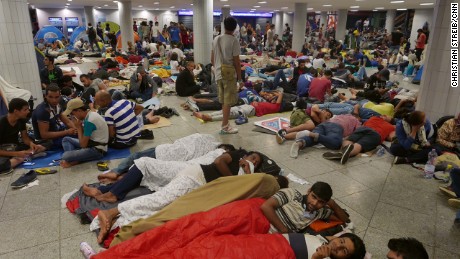But even more distressing to me are the responses of the Slovak and Hungarian governments, namely that their countries have homogenous Christian populations that would not absorb these predominantly Muslim immigrants. There may be some truth to that, but it seems a cop-out. There also may be truth to the argument that prosperous Gulf states would be better suited to handle them, but there may be valid counter-arguments that the cultural similarities among these Middle Eastern countries are deceptively similar.
In either event, it seems ironic that Hungary would be so reluctant to assist, even going to the extent of closing down Keleti for two days, in addition to fencing off its border with Serbia. Because the Hungarian nation itself suffered a refugee crisis in the aftermath of the failed Revolution of 1956, which was crushed by the Soviet military. As this very insightful CNN article points out, it was precisely the route from Budapest through western Hungary to the Austrian border that those refugees fled.
And that is another route I have traveled many times myself. Always, of course, in relative comfort, but it makes me feel more connected to today’s situation.
As bleak as the situation may seem, we can take heart in images of Austrians and German welcoming these Syrians and others into their countries, into their homes, and into their cars for rides from Budapest to Austria and beyond. And by German chancellor Angela Merkel’s generous response, even in the face of criticism by her own coalition members. And by Pope Francis, who on Sunday called on every Catholic parish and convent in Europe to shelter one refugee family. I hope and pray these churches will follow suit.

 RSS Feed
RSS Feed